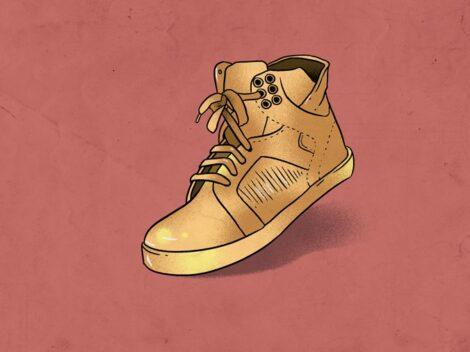Note: This story was updated to reflect the amount of venture money Brandless had raised.
SoftBank-backed Brandless has reportedly shut down operations, according to an article by Protocol’s Biz Carson.
Subscribe to the Crunchbase Daily
Brandless, a direct-to-consumer startup focused on food, beauty and personal care products, had announced it had raised a total of $292.5 million since its inception in 2016, according to Crunchbase data.
SoftBank Vision Fund led its last funding round, a $240 million Series C, which valued the company at $500 million, according to Crunchbase. At that time, our former editor-in-chief Alex Wilhelm pointed out the fact that it was “a huge check at a large cost in equity terms.” But it turns out that SoftBank had only provided about $100 million upfront with a commitment to “fund around another $120 million if certain milestones were met. That final tranche never came,” according to Axios.
New Enterprise Associates led its $35 million Series B in July 2017, a round that also included participation from NBA player Stephen Curry, GV, Scooter Braun, and Cowboy Ventures, among others.
Back in 2017, Crunchbase News sat down with Tina Sharkey, co-founder and CEO of Brandless, to talk about how the company wanted to eliminate the inefficiency of the brand tax while changing the way people shop and live.
Background
It was bound to happen eventually. With all its misteps over the past couple of years, SoftBank was bound to have a portfolio company shut down.
The news that Brandless has shuttered is not entirely shocking, considering that last June, it got a new CEO amidst “turmoil” within the company, according to TechCrunch.
Looks like Brandless’ vision of $3 home goods just couldn’t keep up with the steep competition from rivals like Amazon. In fact, soon after it got that big cash infusion from SoftBank, the startup’s strategy seemed to change. According to TechCrunch’s Connie Laizos, in January 2019, the “company added baby and pet products to its stable of offerings, some of them at a $9 price point.”
In a statement to Protocol, Brandless blamed a “fiercely competitive” retail market that was “unsustainable” for its business.
The news is the latest in a string of bad publicity for SoftBank. In January, we reported on how SoftBank-backed Colombian delivery unicorn Rappi had been hit with a trade secrets lawsuit. Also in January, we covered how two SoftBank-funded startups were in the news for either confirmed or rumored layoffs: Rappi had laid off hundreds of employees, according to Axios. And Bloomberg published an article that discount lodging provider Oyo Hotels reportedly was “firing thousands of staff across China and India.”
That followed pizza-making robot startup Zume, also backed by SoftBank, laying off 53 percent of its employees.
SoftBank, a Japanese investment conglomerate, has been accused of overinflating valuations with its fat checks, and it’s not ending well for many companies. But the practice of investing too much, perhaps too soon, may be catching up with SoftBank. Earlier this year, Axios also reported that SoftBank is cutting its ties with startup investments, even after signing term sheets.
In fact, SoftBank’s heavy-handed check-writing is leading investors and startups alike to rethink sky-high valuations in favor of a path to profitability.
Illustration: Li-Anne Dias

Stay up to date with recent funding rounds, acquisitions, and more with the Crunchbase Daily.



![Illustration of a man sitting on a huge pile o' money. [Dom Guzman]](https://news.crunchbase.com/wp-content/uploads/Giant_Funding-470x352.jpg)




![Illustration of Harris and Trump: 2024 presidential election candidates. [Dom Guzman]](https://news.crunchbase.com/wp-content/uploads/Election-2024-300x168.jpg)


67.1K Followers